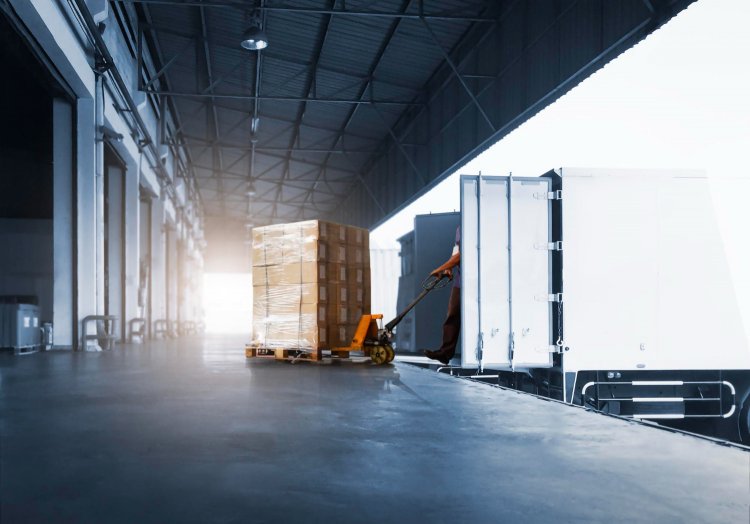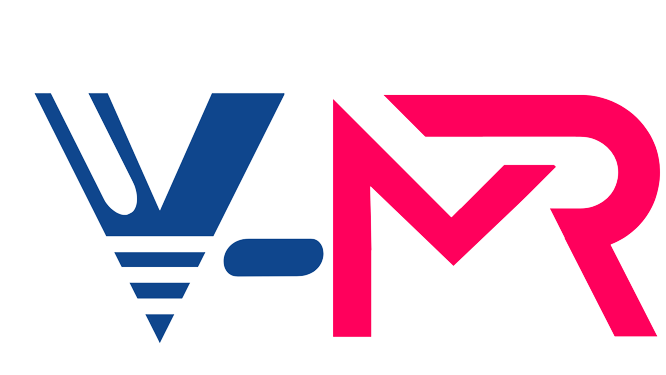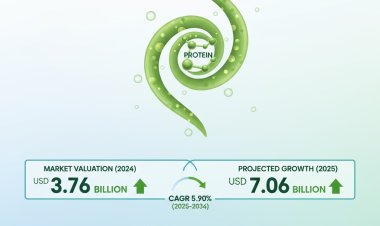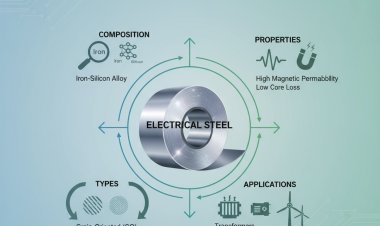Global Cold Chain Market Size to Reach $579.75 Billion at a CAGR of 9.5% by 2030
Vantage Market Research expects the Cold Chain Market to reach USD 579.75 Billion by 2030, exhibiting a growth rate CAGR of 9.5% during 2023-2030.

The Global Cold Chain Market size reached USD 280.5 Billion in 2022. Vantage Market Research expects the market to reach USD 579.75 Billion by 2030, exhibiting a growth rate (CAGR) of 9.5% during 2023-2030.
Table of Contents
|
Introduction: |
|
|
|
Key Advancements Shaping the Future: |
|
|
|
|
|
|
|
|
|
|
|
|
|
|
|
|
|
|
|
Challenges and Opportunities: |
|
|
|
|
Conclusion: |
|
|
|
The Future of Cold Chain Logistics: Advancements Driving Efficiency and Sustainability
Cold Chain logistics is crucial to many industries, including food, pharmaceuticals, and healthcare. It involves transporting and storing temperature-sensitive products while maintaining their integrity and quality. The global Cold Chain logistics market is expected to grow exponentially in the coming years, driven by technological advancements promising to revolutionize the industry and make it more efficient and sustainable.
Request Sample Report of Cold Chain Market @ https://www.vantagemarketresearch.com/cold-chains-market-2304/request-sample
Top Companies in Global Cold Chain Market
- Americold Logistics Inc. (U.S.)
- Lineage Logistics Holding LLC (U.S.)
- United States Cold Storage (U.S.)
- Burris Logistics (U.S.)
- Wabash National Corporation (U.S.)
- NewCold (Netherlands)
- Sonoco ThermoSafe (Sonoco Products Company) (U.S.)
- United Parcel Service of America Inc. (U.S.)
- A.P. Moller – Maersk (Denmark)
Driving Factors
One of the key advancements in Cold Chain logistics is the use of Internet of Things (IoT) technology. IoT enables real-time monitoring of temperature and humidity conditions during transportation and storage, ensuring that products are kept within their required ranges. This technology allows for proactive measures to be taken in case of any deviations, such as adjusting the temperature or rerouting the shipment to a different facility. By providing accurate and timely information, IoT technology reduces the risk of spoilage, thereby minimizing product loss and increasing efficiency in the supply chain.
Another significant advancement in Cold Chain logistics is the use of blockchain technology. Blockchain is a distributed ledger that records and verifies transactions across multiple parties in a transparent and secure manner. In the context of Cold Chain logistics, blockchain can be used to track and trace products from the point of origin to the final destination. This technology ensures the integrity and authenticity of the products, making it easier to identify quality issues and take corrective actions. Additionally, blockchain can enable better collaboration between different stakeholders in the supply chain, such as manufacturers, distributors, and retailers, by providing a single source of truth for all parties involved.
Automation is also playing a crucial role in the future of Cold Chain logistics. From robotic systems for warehouse operations to autonomous vehicles for transportation, automation is driving efficiency and reducing human error in the supply chain. For example, automated material handling systems can optimize storage and retrieval processes, minimizing wasted space and reducing the time required to locate and retrieve products. Similarly, autonomous vehicles can optimize delivery routes, reduce fuel consumption, and enhance safety. By automating various aspects of the Cold Chain logistics process, companies can increase throughput, reduce costs, and improve overall efficiency.
Advancements in packaging materials are also contributing to the future of Cold Chain logistics. Insulated containers, temperature-controlled packaging, and phase-change materials are being developed to provide better protection for temperature-sensitive products. These materials help maintain a consistent temperature throughout the shipping process, reducing the risk of product spoilage. Additionally, sustainable packaging solutions, such as biodegradable and recyclable materials, are being adopted to minimize waste and promote environmental sustainability. These advancements in packaging technology not only enhance product quality but also contribute to a more sustainable Cold Chain logistics industry.
Furthermore, artificial intelligence (AI) is revolutionizing Cold Chain logistics by enabling predictive analytics and demand forecasting. AI algorithms can analyze historical data and identify patterns and trends that humans may not be able to discern. By leveraging this data, companies can make more accurate forecasts about demand, optimize inventory levels, and improve resource allocation. AI-powered predictive analytics can also help identify potential issues in the supply chain, such as bottlenecks or capacity constraints, before they escalate into major problems. By leveraging AI technology, companies can streamline their operations and make data-driven decisions that drive efficiency and sustainability in the Cold Chain logistics industry.
Buy Now Our Cold Chain Industry Report @ https://www.vantagemarketresearch.com/buy-now/cold-chains-market-2304/0
In addition to these advancements, renewable energy sources are being integrated into Cold Chain logistics operations to reduce carbon emissions and promote sustainability. Solar panels and wind turbines are being installed in warehouses and transportation hubs to generate clean energy that can be used to power refrigeration units and other equipment. This not only reduces reliance on fossil fuels but also helps companies meet their sustainability goals and contribute to a greener future.
While the future of Cold Chain logistics looks promising, challenges still exist. The cost of implementing and maintaining advanced technologies, regulatory compliance, and the need for skilled personnel are some of the barriers that companies may face. However, as the industry continues to evolve and the benefits of these advancements become more evident, it is expected that more companies will adopt these technologies and overcome these challenges.
In conclusion, the future of Cold Chain logistics is shaped by advancements in technology that are driving efficiency and sustainability. IoT, blockchain, automation, advancements in packaging materials, AI, and renewable energy sources are all contributing to a more efficient and sustainable Cold Chain logistics industry. These advancements enable real-time monitoring, traceability, automation, predictive analytics, and the use of clean energy, thereby reducing product loss, improving operational efficiency, and minimizing environmental impact. As these technologies continue to develop and become more accessible, the future of Cold Chain logistics looks promising in terms of efficiency and sustainability.
Read Our Latest Press Release: Auto Parts Market - In-depth Analysis
Contact us
Eric Kunz
6218 Georgia Avenue NW Ste 1 - 564
Washington DC 20011-5125
United States Tel: +1 202 380 9727
Email: [email protected]
Website: Vantage Market Research


















